Yorkshire Terriers, commonly known as Yorkies, are one of the most beloved small dog breeds in the world. Known for their tiny stature, luxurious coats, and vibrant personalities, Yorkies have captured the hearts of many. They are adaptable, suited for apartment living, and make excellent companions for a variety of people, including singles, seniors, and families with older children. Despite their small size, they are full of energy, affection, and a bold temperament, often unaware of their diminutive stature. Finding breeds similar to Yorkies involves looking at dogs that share some of these key traits: small size, dynamic personalities, and suitability for companionship. This exploration will uncover breeds that, while maintaining their unique characteristics, offer similar charms and challenges as the Yorkshire Terrier. Whether you’re drawn to the Yorkie for its size, personality, or appearance, there are several other breeds that might capture your heart in much the same way.
1. Silky Terrier
The Silky Terrier, often mistaken for a Yorkshire Terrier, shares many attributes that make it a close relative and a similar companion choice. Originating from Australia, this breed was developed by crossing the Yorkshire Terrier with the Australian Terrier, aiming to refine its coat texture and color. Silky Terriers are slightly larger than Yorkies but maintain a compact size, with a fine, silky hair that is reminiscent of human hair, requiring similar grooming attention. Their temperament is vivacious and alert, showing a degree of independence while still being highly affectionate with their owners. They share the Yorkie’s boldness and can be equally assertive despite their small size. This breed thrives in various living situations and is adaptable, making them suitable for both apartments and houses, provided they receive enough mental and physical stimulation.
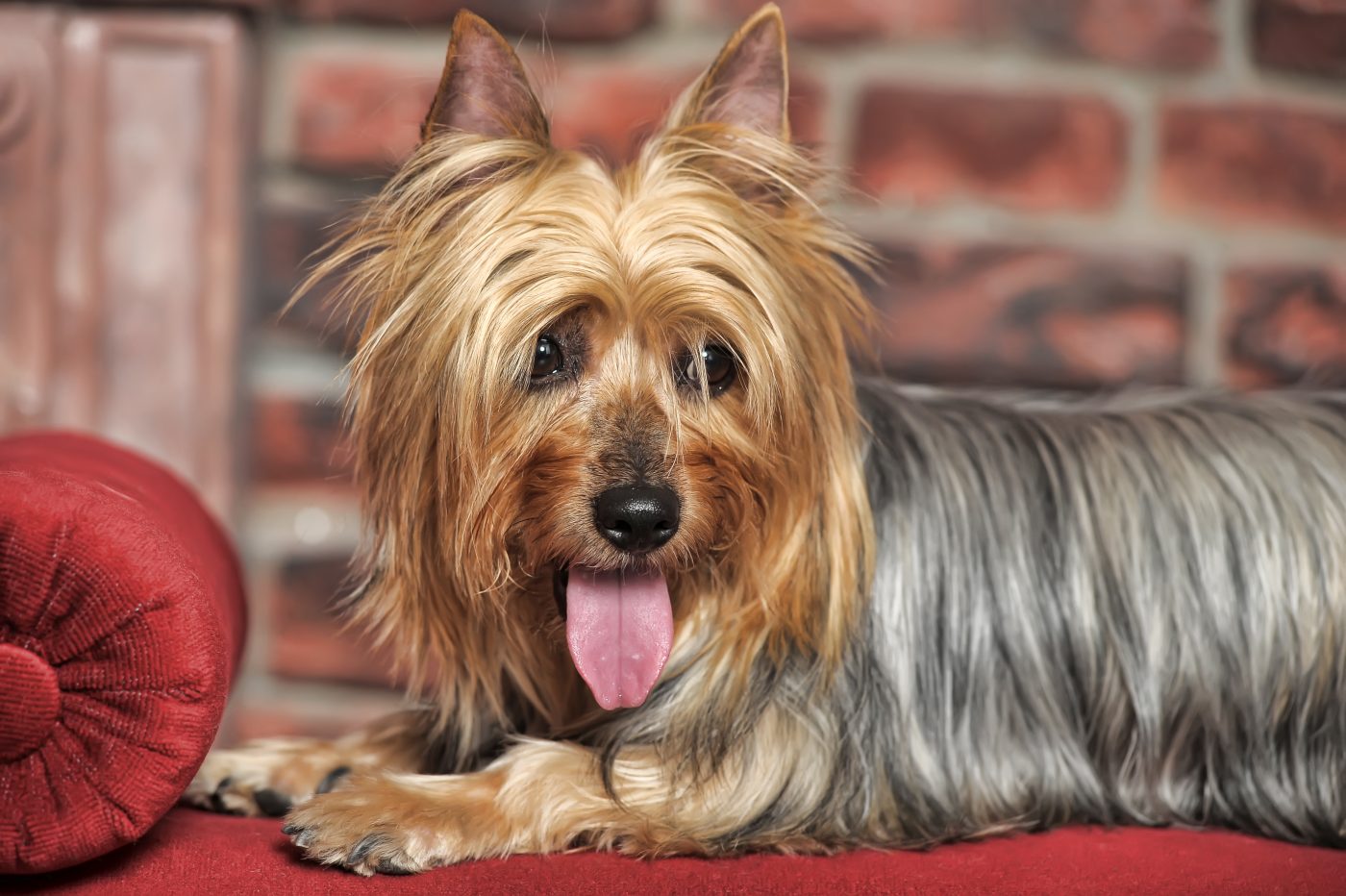
2. Maltese
The Maltese is another toy breed that shares many similarities with Yorkies, particularly in terms of companionship qualities. Known for their gentle and affectionate nature, Maltese dogs are covered in a mantle of long, silky white hair that, like the Yorkie’s, requires regular grooming to maintain its luxurious appearance. Although they don’t share the terrier’s instinct for hunting and digging, they do possess a lively and playful demeanor that makes them excellent companions. Maltese are also known for their fearless nature, showing a brave heart despite their small size. They bond closely with their owners, thriving on attention and interaction, making them perfect for those seeking a devoted lap dog with a touch of elegance.
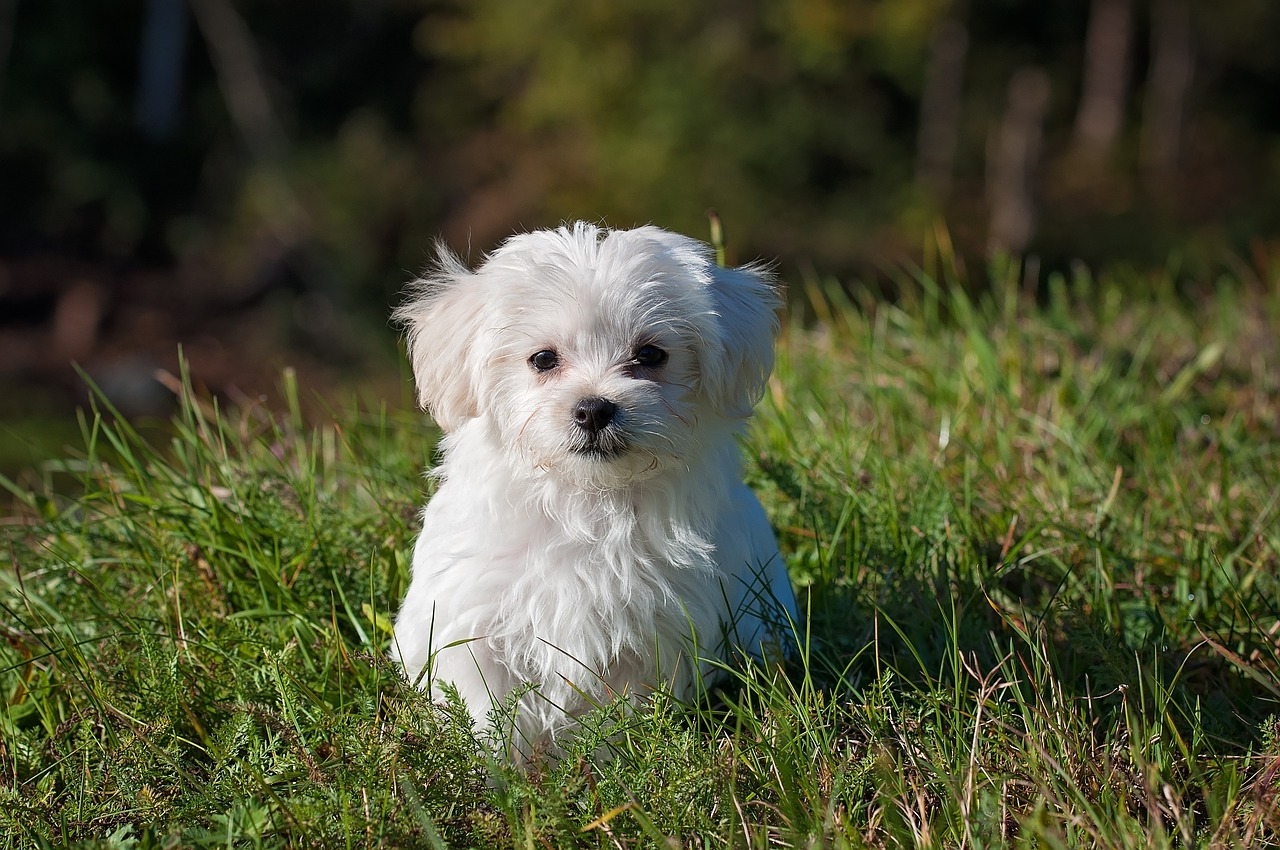
3. Toy Poodle
Toy Poodles offer a blend of intelligence, elegance, and affection, traits that are highly valued in Yorkies as well. Although poodles come in three sizes (standard, miniature, and toy), the Toy Poodle, in particular, matches the Yorkie in terms of size and adaptability to various living situations. Known for their curly, hypoallergenic coats, Toy Poodles require regular grooming to keep their fur trimmed and healthy. They are incredibly smart and easily trained, capable of performing various tricks and commands. This intelligence and their playful and affectionate nature make them an excellent companion. Toy Poodles are also social animals that bond deeply with their families, showing a level of loyalty and love that mirrors that of the Yorkshire Terrier.
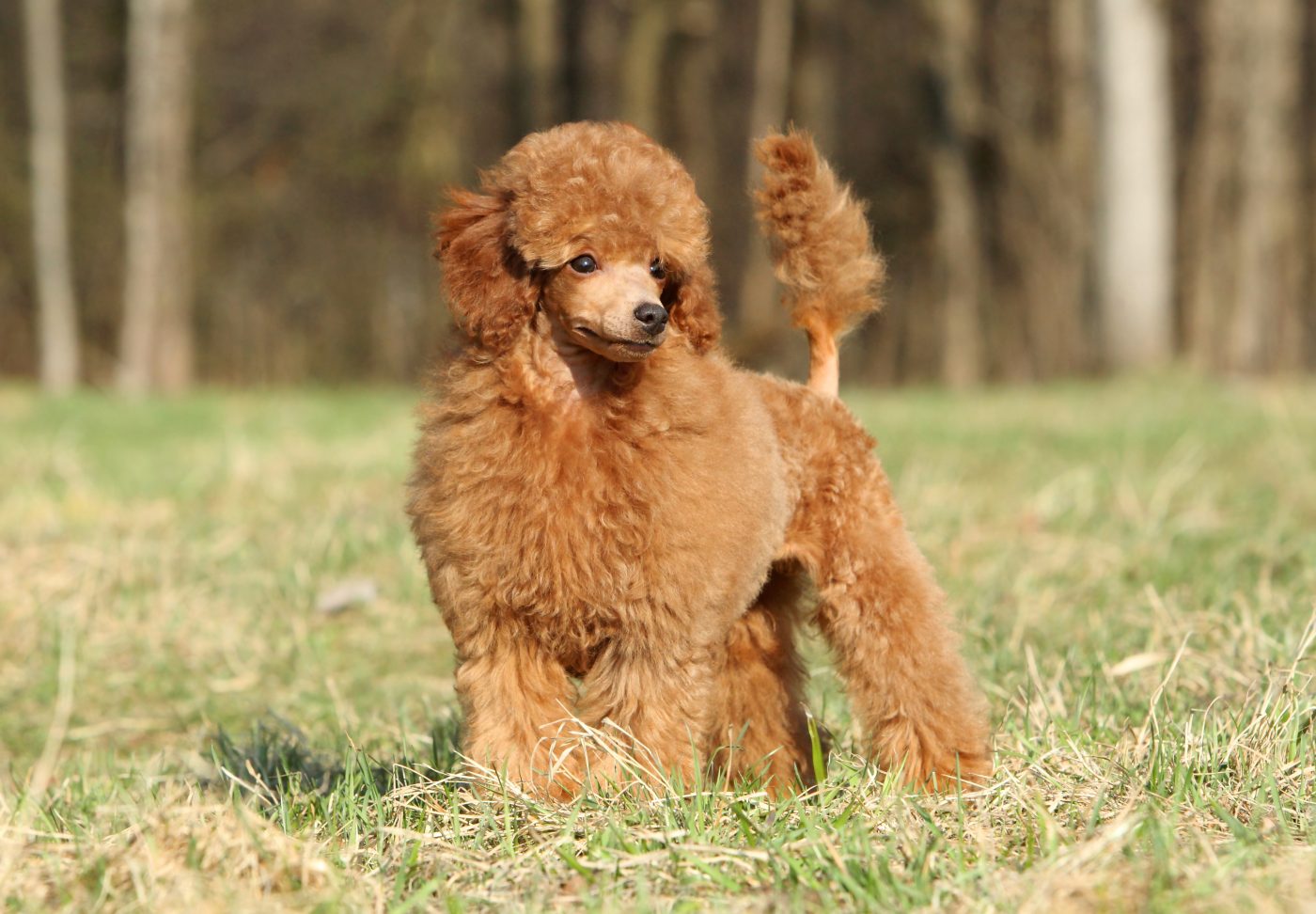
4. Bichon Frise
The Bichon Frise is a cheerful, small breed that embodies many of the Yorkie’s best qualities, including a friendly disposition and a penchant for companionship. With their fluffy white coats and round, expressive eyes, Bichons are instantly recognizable and adored for their playful and affectionate nature. They are particularly noted for their hypoallergenic coat, which, like the Yorkie’s, requires regular grooming to maintain its fluffy appearance. Bichon Frises are great companions for families and individuals alike, thriving on human interaction and being involved in family activities. Their adaptable nature makes them well-suited for various living situations, from apartments to larger homes, as long as they receive the love and attention they crave.

5. Cavalier King Charles Spaniel
Cavalier King Charles Spaniels are known for their gentle disposition and expressive, loving eyes, qualities that they share with Yorkies. Though larger than the Yorkshire Terrier, Cavaliers offer a similar blend of companionship and adaptability, making them ideal pets for those who appreciate the Yorkie’s temperament but desire a slightly larger dog. Their silky, medium-length coat comes in various colors and requires regular grooming to keep it in good condition. Cavaliers are renowned for their friendly, affectionate nature and their ability to bond with children and adults alike. They are equally comfortable lounging on a lap or joining in gentle play, demonstrating the versatile companionship that Yorkie owners often cherish.
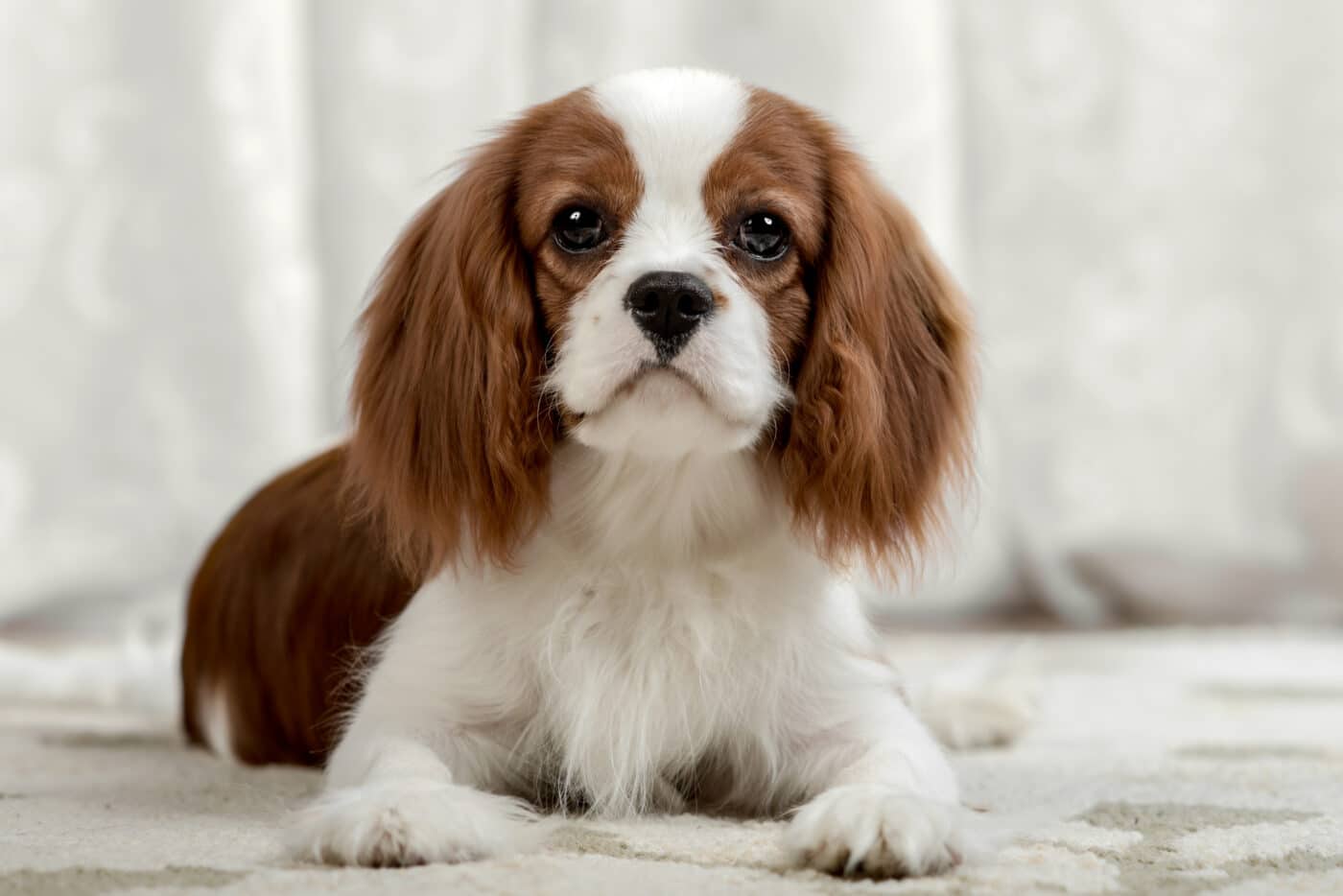
6. Chihuahua
Chihuahuas are another breed that shares the Yorkie’s small stature and big personality. Known as the smallest dog breed, Chihuahuas pack many characters into a tiny frame. They are fiercely loyal to their owners, with a bold and confident personality that can sometimes lead to them being overprotective. Like Yorkies, they require minimal grooming if they have a short coat, but long-coated varieties will need more care to keep their fur tangle-free. Chihuahuas are adaptable to apartment living due to their size, but they also have a stubborn streak that can make training a challenge, requiring patience and consistency. Their spirited nature and loyalty make them a great choice for those looking for a small breed with a big heart.

7. Pomeranian
Pomeranians are small, fluffy dogs known for their vivacious and spirited personality, much like Yorkies. They possess a thick double coat that comes in various colors and patterns, requiring regular grooming to maintain their distinctive, puffy appearance. Pomeranians are active and playful, enjoying both indoor playtimes and outdoor adventures. Despite their small size, they have a loud bark and can be quite protective of their families, making them good little watchdogs. Their energy and intelligence make them highly trainable, although they can have a stubborn streak. For those who love the Yorkie’s dynamic personality but desire a dog with a different look, the Pomeranian offers a wonderful alternative.
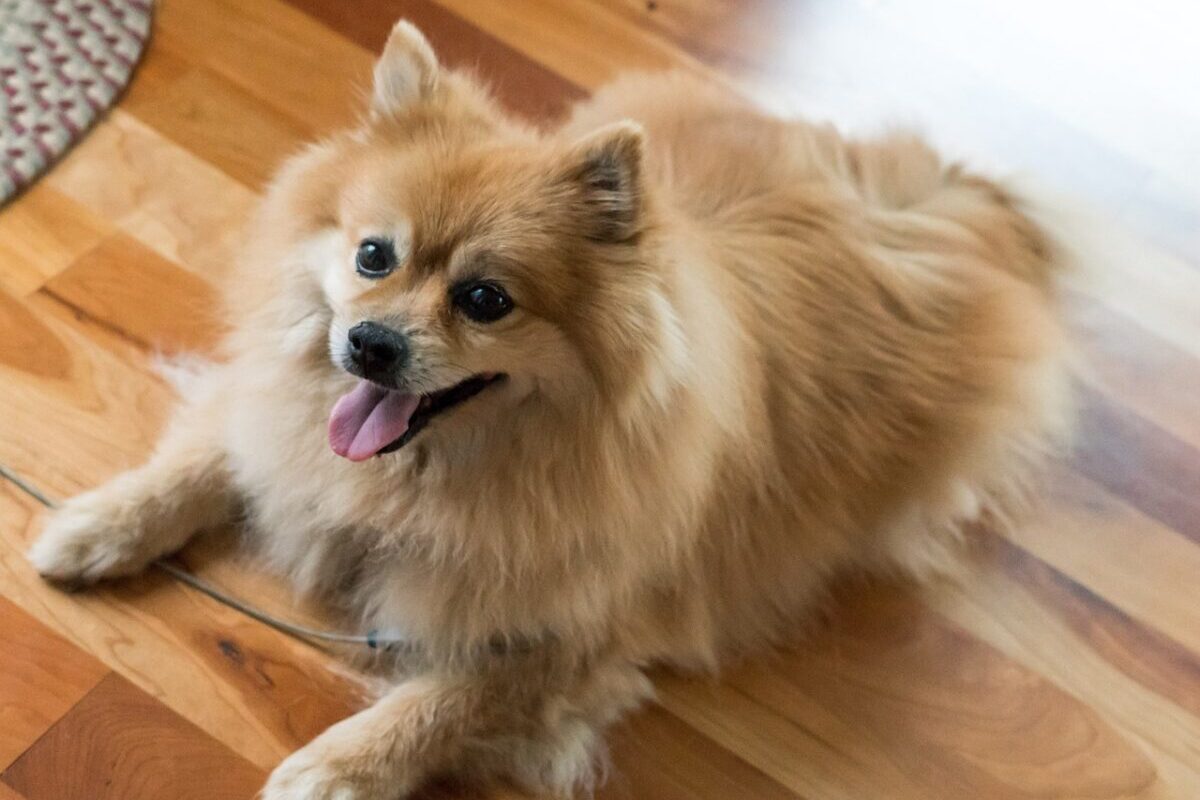
8. Papillon
The Papillon, named for its butterfly-like ears, is a small and elegant breed that shares the Yorkie’s intelligence and affectionate nature. They have a beautiful, flowing coat that requires regular grooming, although not as intensive as some other breeds. Papillons are known for their lively and friendly personality, enjoying the company of their human companions and participating eagerly in family activities. They are surprisingly athletic for their size and enjoy mental and physical challenges, making them great companions for those who enjoy training and playing with their pets. Their adaptability and social nature make them suitable for various living environments, from apartments to larger homes.
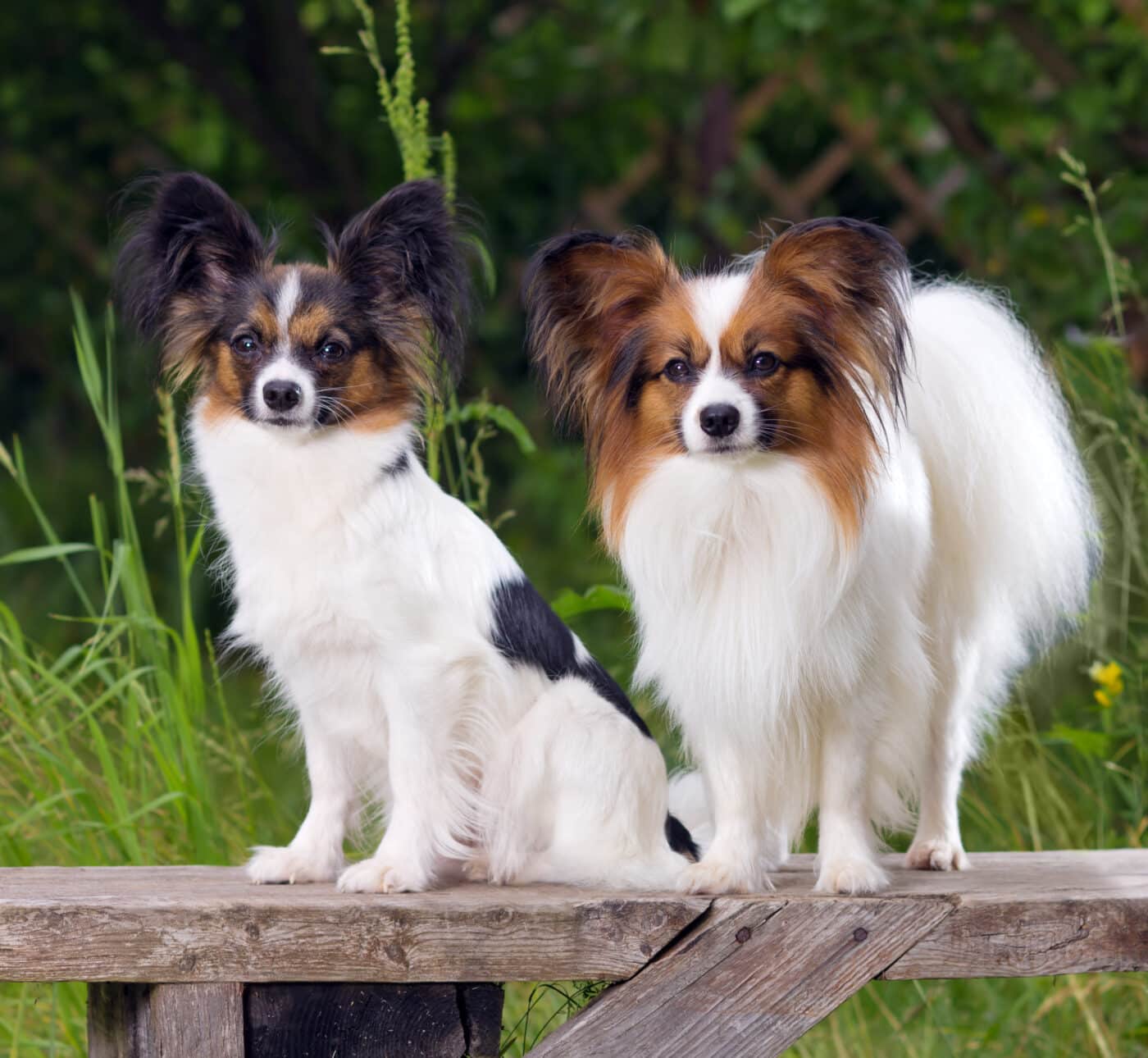
9. Shih Tzu
Shih Tzus are another breed that enthusiasts often compare to Yorkies, primarily because of their similar size and affectionate temperament. Known for their long, flowing coats and sweet, friendly nature, Shih Tzus make excellent companions. They require regular grooming to keep their coat in good condition, similar to the Yorkie’s maintenance needs. Shih Tzus are adaptable to different living situations and are particularly good with families and children, offering a gentle and loving presence. They enjoy being the center of attention and thrive on human companionship, making them ideal pets for those seeking a devoted and affectionate friend.
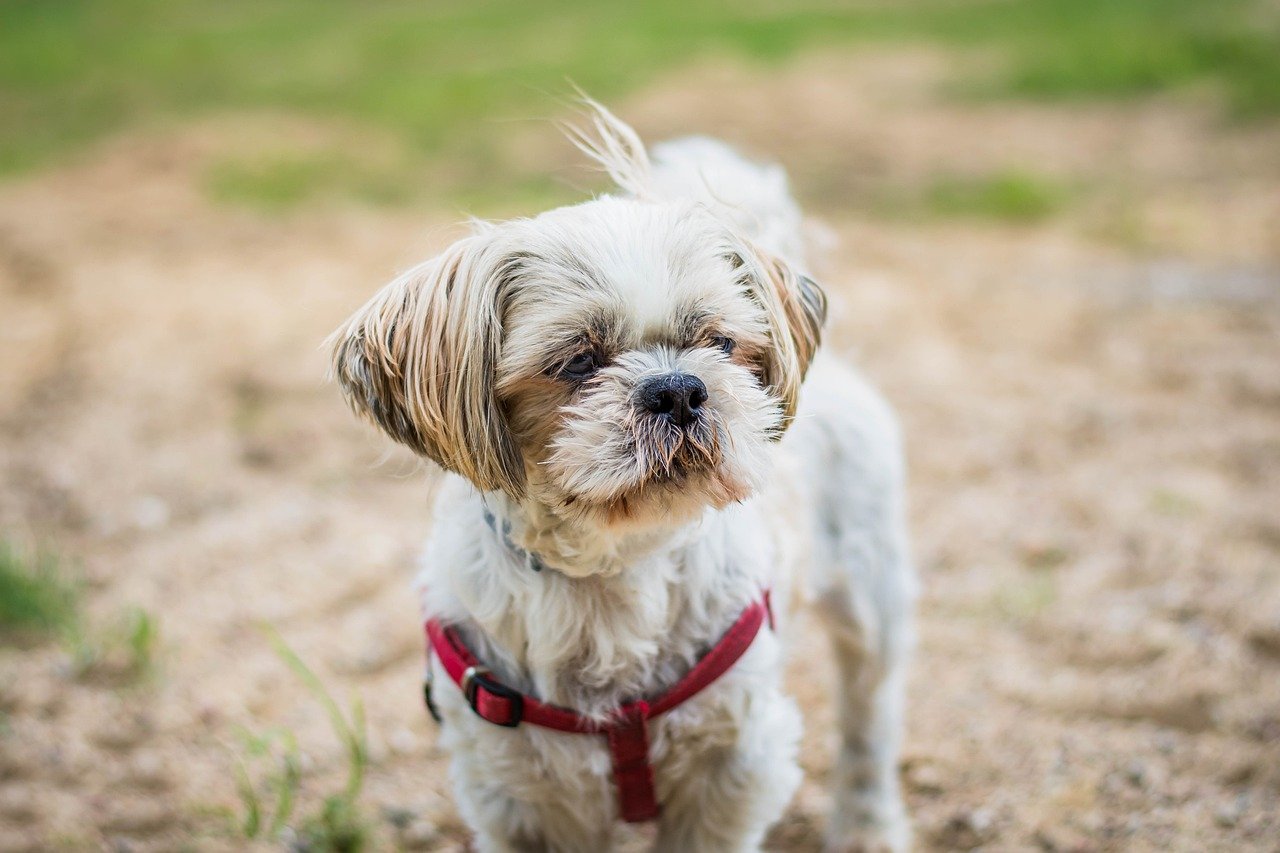
10. Miniature Schnauzer
Miniature Schnauzers are energetic and spirited, much like Yorkies, but they come in a slightly larger package. They share the terrier trait of being alert and lively, with a wiry coat that requires regular grooming to maintain its distinctive appearance. Miniature Schnauzers are known for their intelligence and eagerness to please, making them highly trainable. They are excellent family pets, getting along well with children and other animals when properly socialized. Their protective nature makes them good watchdogs, although they are generally friendly towards strangers once they know there is no threat. For those who appreciate the Yorkie’s terrier qualities but desire a dog with a different look and slightly larger size, the Miniature Schnauzer is an excellent choice.
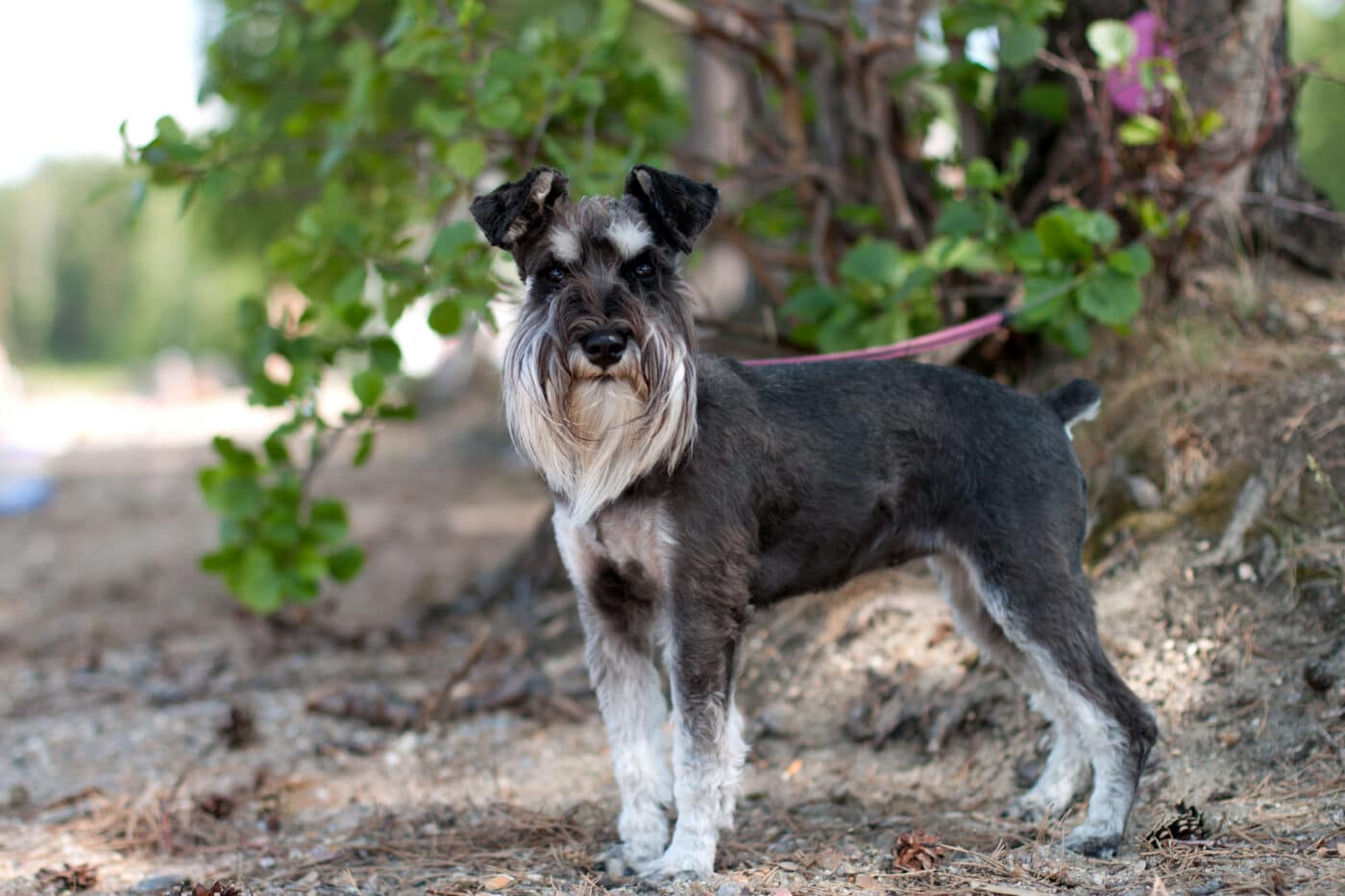










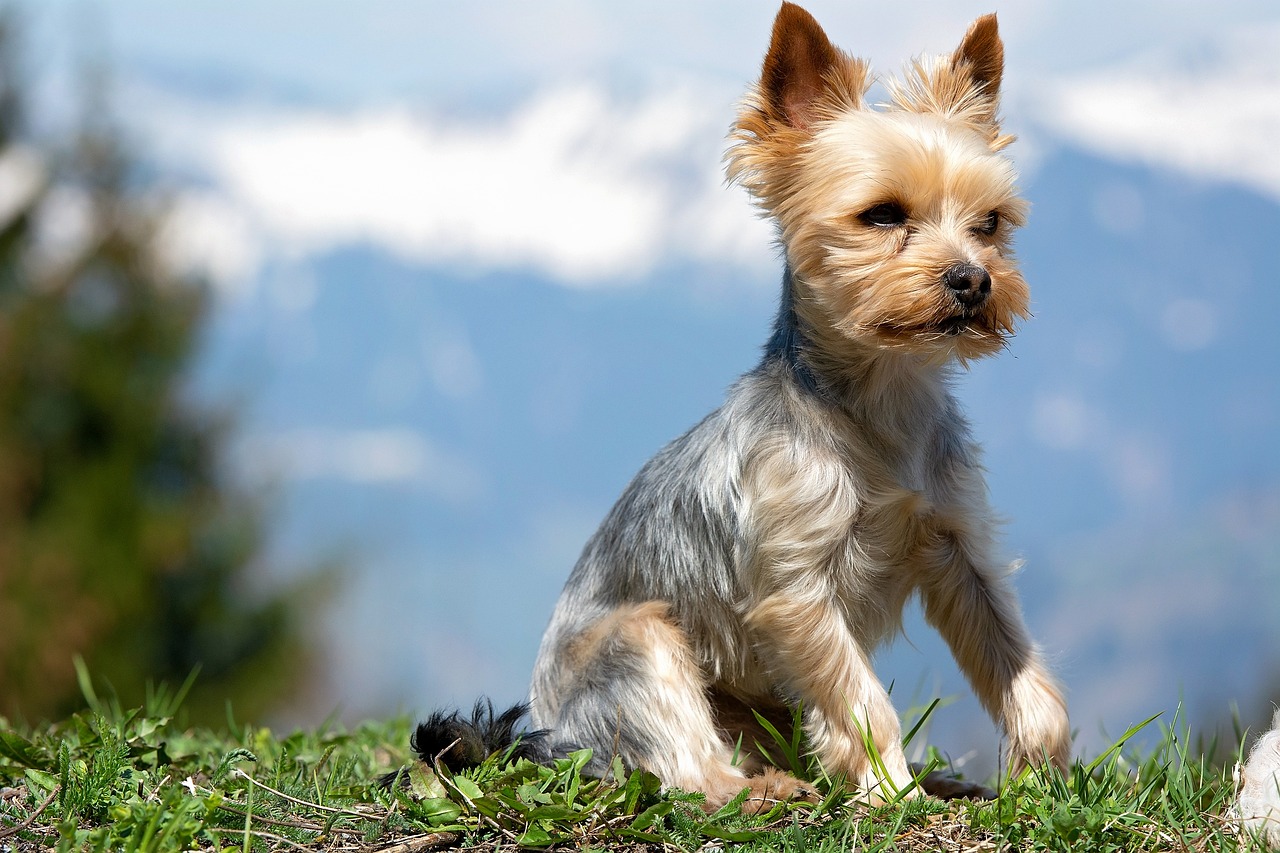 Yorkshire Terriers, affectionately known as Yorkies, are distinguished by their compact size and spirited personality. A member of the toy group, Yorkies typically weigh between four to seven pounds, making them one of the smallest dog breeds. Despite their diminutive stature, they possess a bold and adventurous spirit, often displaying behaviors and attitudes much larger than their size would suggest.
One of the most striking features of Yorkies is their luxurious coat, which is fine, silky, and straight, resembling human hair more than traditional dog fur. This beautiful coat can come in shades of blue and tan, and when maintained properly, flows elegantly to the ground. Grooming plays a crucial role in the life of a Yorkie, requiring regular brushing and care to prevent tangles and maintain its glossy appearance.
Yorkshire Terriers, affectionately known as Yorkies, are distinguished by their compact size and spirited personality. A member of the toy group, Yorkies typically weigh between four to seven pounds, making them one of the smallest dog breeds. Despite their diminutive stature, they possess a bold and adventurous spirit, often displaying behaviors and attitudes much larger than their size would suggest.
One of the most striking features of Yorkies is their luxurious coat, which is fine, silky, and straight, resembling human hair more than traditional dog fur. This beautiful coat can come in shades of blue and tan, and when maintained properly, flows elegantly to the ground. Grooming plays a crucial role in the life of a Yorkie, requiring regular brushing and care to prevent tangles and maintain its glossy appearance.
 Toledo, United States.
Toledo, United States.
